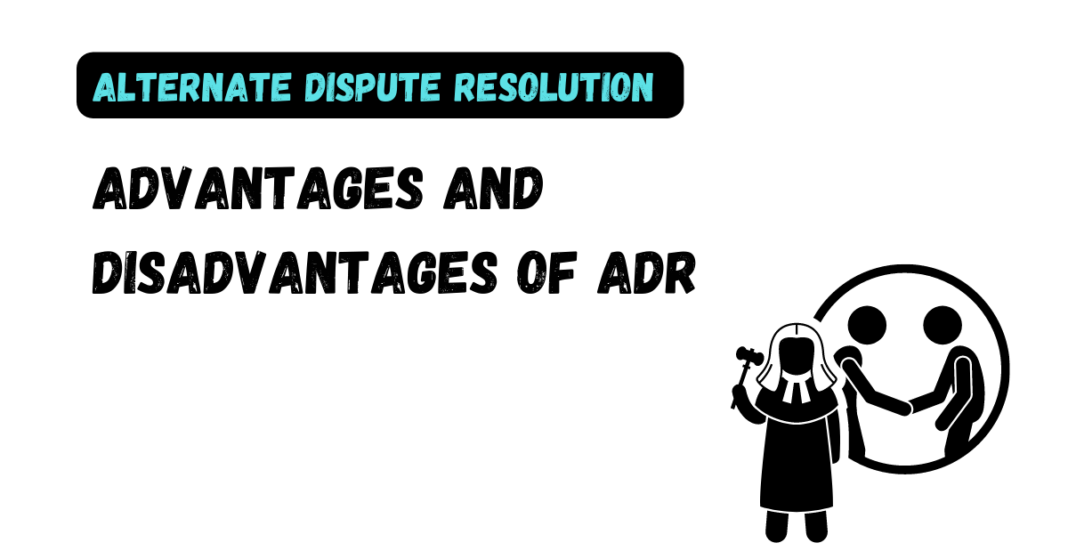ADR stands for Alternative Dispute Resolution. It refers to a set of processes and techniques used to resolve disputes outside of the traditional court system. ADR is designed to be faster, more cost-effective, and less formal than litigation, while still allowing parties to reach a mutually agreeable resolution. Here are some advantages and disadvantages of using ADR:
Advantages of ADR:
- Time-saving: ADR is typically faster than traditional court proceedings, as parties can schedule ADR sessions at a mutually convenient time and parties don’t have to wait for a court date.
- Cost-effective: ADR is generally less expensive than going to court, as parties can avoid the high costs of hiring attorneys and going through a lengthy legal process.
- Greater control: Parties have more control over the outcome of the dispute in ADR, as they are actively involved in the resolution process and can come up with creative solutions that are not available in court.
- Confidentiality: ADR proceedings are generally confidential, which can help parties feel more comfortable sharing information that they might not want to be made public.
Disadvantages of ADR:
- Non-binding decisions: Some forms of ADR, such as mediation, result in non-binding decisions that are not enforceable in court. This means that if a party does not follow through with the agreement reached in mediation, the other party may have to go to court to enforce it.
- Limited discovery: In ADR, parties may not have access to the same level of discovery as they would in court, which could lead to a disadvantage for one party.
- Unequal bargaining power: ADR may not be appropriate in situations where there is a significant power imbalance between the parties, such as in cases involving domestic violence or employment discrimination.
- Limited remedies: ADR may not offer the same remedies that are available in court, such as injunctive relief or punitive damages.





